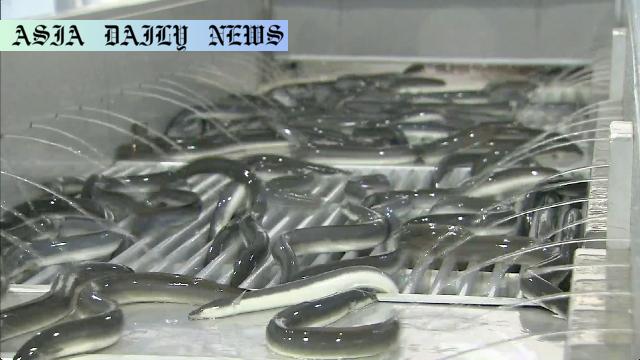Eel Trade Regulations: The European Union proposes new eel trade regulations under an international convention to enhance protections.

Introduction: A Step Forward in Conservation
The European Union has taken a remarkable step towards the conservation of the world’s eel species by proposing new international trade regulations under the Convention on International Trade in Endangered Species of Wild Fauna and Flora (CITES). This bold initiative aims to include all eel species, such as the Japanese eel, under trade controls. Along with the Dominican Republic and other nations, the EU has submitted this proposal, which will be deliberated at a critical meeting scheduled to take place in Uzbekistan in November. If approved, these new regulations will mark a pivotal moment in both environmental conservation and international commerce.
Historical Efforts to Safeguard Eel Species
The effort to conserve eels is not new. In 2009, the European eel was officially included in CITES regulations, setting an example of prioritizing endangered species. Since then, the EU has consistently advocated for increased transparency in the global trade of eels. In 2016, a study was adopted to thoroughly analyze the global eel trade’s shortcomings and irregularities. This study became the foundation for regulatory measures to prevent over-exploitation and ensure the species’ long-term survival. The current proposal builds on these earlier milestones, focusing on non-listed eel species that have remained vulnerable to unchecked trade practices.
A Comprehensive Approach to Address Eel Trade Challenges
The proposed regulations aim to bridge gaps in eel trade management that have allowed certain species to escape necessary protections. For decades, eels have been subject to high demand in global markets, particularly in East Asian cuisine. However, overfishing, habitat destruction, and climate change have left many species, including the Japanese eel, severely threatened. By introducing trade permits for exporting countries, the EU’s proposal seeks to create better oversight and accountability in the global eel trade, drastically reducing the chances of illegal or unsustainable practices.
Global Partnership for Sustainable Trade Practices
Collaboration among nations will be vital in enforcing this regulation effectively. The involvement of countries like the Dominican Republic signifies a growing awareness and unified effort to address endangered species trade comprehensively. The CITES secretariat’s engagement also underscores the broader ecological implications, emphasizing the need for sustainable trade practices. If the proposal garners approval during the upcoming discussions, exporting nations will have no choice but to issue permits adhering to these stringent guidelines, thereby significantly curbing negligence and illicit activity.
The Road Ahead: Challenges and Opportunities
While the introduction of these regulations is a significant starting point, challenges persist. Enforcement mechanisms will need to be robust, with built-in checks and balances to ensure compliance by all stakeholders. Furthermore, educating the public about the disappearing eel populations and encouraging responsible consumption will play a crucial role in achieving long-term conservation goals. On the upside, the implementation of these regulations could serve as a precedent for addressing trade issues linked to other endangered species, fostering a global culture of accountability and sustainability.
In conclusion, the EU’s proposal to make all eel species subject to international trade regulations under CITES is a bold and commendable initiative. By addressing existing gaps and setting clear guidelines, this effort showcases the power of international cooperation in reversing the decline of vulnerable species. Moving forward, the global community must rally behind such efforts to ensure that conservation becomes a cornerstone of trade and policy-making.
Commentary
The Significance of Eel Protection
The EU’s proposal to introduce stricter trade regulations covering all eel species is both timely and necessary. In a world increasingly threatened by overexploitation of natural resources, taking decisive action to preserve vulnerable species like eels highlights a bright example of responsible governance. Eels, which are vital to various aquatic ecosystems, have suffered greatly from habitat destruction, climate change, and unregulated trade practices. Protecting them ensures ecological balance while underscoring the interconnectedness of biodiversity and sustainable development.
Navigating the Challenges of Implementation
While the intentions of the EU are commendable, the road to implementation is fraught with challenges. Ensuring that exporting nations adhere to the new trade regulations will require coordinated global effort. CITES, as an international governing body, must provide clearer operational frameworks, adequate funding for enforcement, and technical assistance to countries struggling with resources. Moreover, tackling illicit trade networks that have historically benefited from the lack of regulation will require an unprecedented level of international intelligence-sharing and law enforcement collaboration.
A Vision for a Sustainable Future
The EU’s commitment to reviewing eel trade practices serves as a small but powerful step towards encouraging sustainability in global commerce. However, this initiative should not exist in isolation. It should be seen as part of a larger, global policy push toward sustainable harvesting, environmental education, and public responsibility in consumption habits. Beyond its immediate conservation implications, this step has the potential to build momentum for similar regulatory actions protecting other vulnerable species, shaping a more sustainable world for future generations.
In conclusion, this proposal offers more than just a resolution for eels; it presents a framework for how international cooperation can tackle ecological issues effectively. Now, it is up to global leaders, industries, and communities to rise to the challenge, turning policies into impactful actions.


